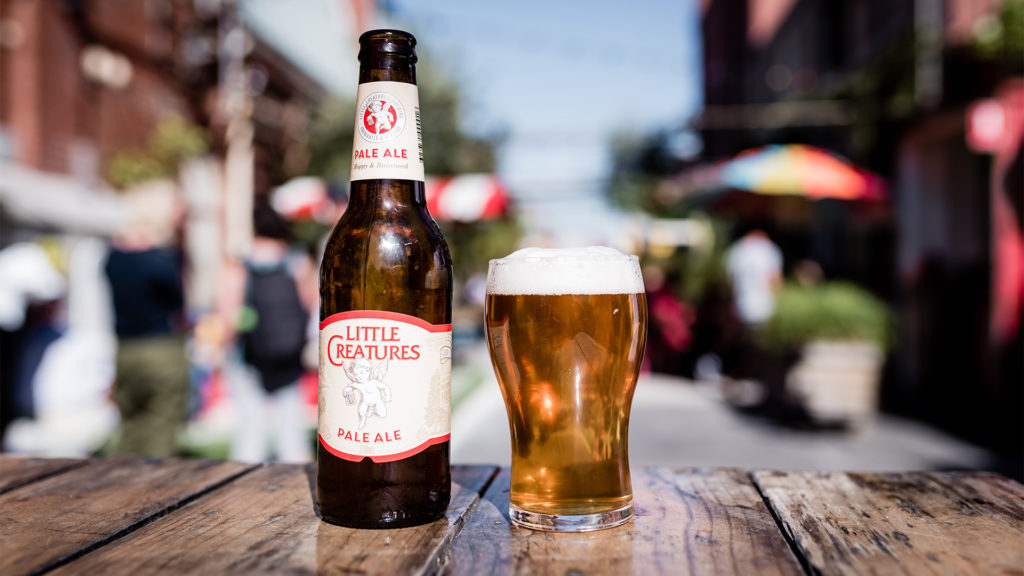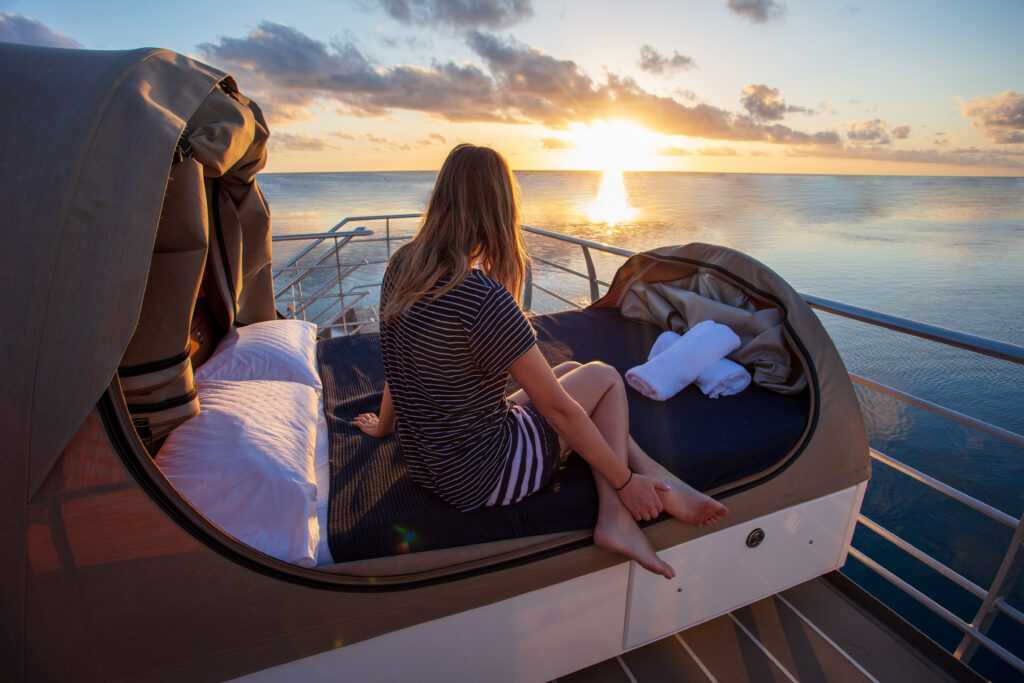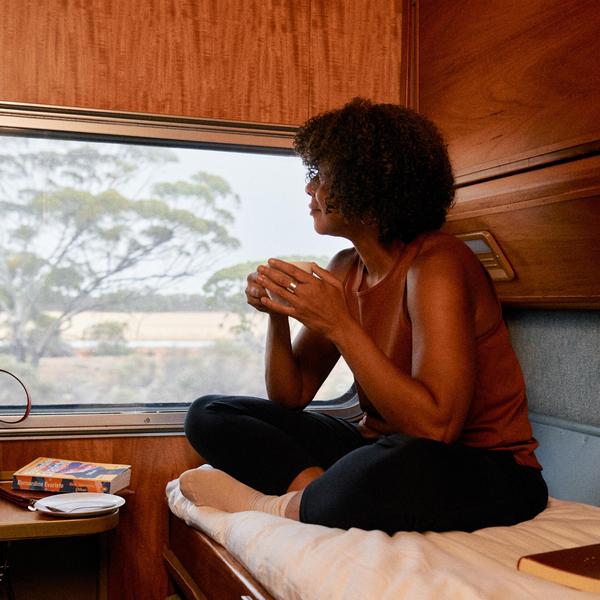In the last two decades, Australia’s craft beer scene has gone from non-existent to booming. No brewery’s story is more emblematic of the sector’s transformation than that of Western Australia’s Little Creatures– whose commitment to flavour and innovation has seen it grow from an early pioneer to an omnipresent force with locations across Australia, Asia, and soon, in the USA and UK
INTERVIEW Farrin Foster
PHOTOS Little Creatures
When Russell Gosling, the head brewer at Little Creatures’ Fremantle brewery first came to Australia from the UK in 2005, our country’s taste in beer could be neatly summed up in one word. “Lager,” says Russ.
“It was just a sea of lager ten years ago that nobody could distinguish. You could blindfold someone in a pub and pour something out of each tap and they wouldn’t be able to tell the difference.”
In 2019, the beer scene is vastly different. Beer taps in pubs across the nation pour everything from super-hoppy IPAs (short for India Pale Ale) to experimental sour beers, while “brew-pubs” – venues which co-locate a working brewery with a front bar and kitchen- have sprung up around the country. The change has been led by the rapid emergence of a domestic craft beer industry that is supplying drinkers with something different to put in their pint glasses.
In 2006, according to the Independent Brewers’ Association, there were just 30 craft breweries in Australia. In 2017 the number had increased by a massive multiplier of 14 – taking our domestic craft brewery count to 420. Australia’s embrace of craft brews, Russ says, can be attributed to an increasingly adventurous palate.
“People want to explore beer now,” he says. “They seem to know more about beer and I often describe beer as the yoga of drinks – there are so many different styles for different occasions. “The craft scene has opened people up to a new world of flavour and they understand there’s so much to explore and discover.” Even with the rising tide of competitors, Little Creatures’ beers have remained front runners.
Its original home – an old crocodile farm in the Western Australian town of Fremantle, which was converted into a state-of-the-art brewery, beer hall and dining hall – has become a cornerstone of the local community and a strong drawcard that brings tourists into the area. Its success as a venue is now being replicated in Little Creatures locations around the world. Their signature brew – a flowery, fruity, yet still bitter Pale Ale – is found in pubs and bottle shops everywhere in Australia, while other parts of their year-round range, like the Rogers’ Amber Ale and the refreshing Bright Ale, are equally ubiquitous. Russ credits the brand’s persistent popularity to a strong flavour identity that is maintained through their brewing philosophy.
“For the Pale Ale, we use whole hop flowers or leaf hops in the vessel – we’re probably the only commercial brewery in Australia to do this. It captures the resins and essentials oils from hops without the green raw matter you get from pellets, and produces a more refined, delicate hop character. “And for all our beers, we do not pasteurise.
We have extreme hygiene in our breweries, so there’s no need to heat treat and heat has a detrimental impact on hop flavour. And we bottle condition the beer – only Coopers and us do that. It goes through a secondary fermentation process in-bottle that naturally carbonates the beer so we retain all the hoppy aromatics in the beer. “Those things cost money and they represent challenges for the brewers, but we feel it’s the right thing to do and we have worked out how to do it properly.”That commitment to doing things right and getting the flavour right hasn’t just served Little Creatures’ drinkers well, it’s also served the busi-ness well.
Little Creatures’ first beer was launched in 2000. By 2005, demand was so high that it expanded its brewing facilities at Fremantle – adding extra capacity to the existing brewery.
In 2008, the brand opened its first east coast venture – the Little Creatures Dining Hall in Fitzroy. Just a few years later, the brewery was attracting international attention, and in 2012 it was bought out by multi-national giant Lion Nathan. The growth has continued from there.
2013 saw the opening of a secondary brewery in Geelong, because– as Russ says – “sending beer across the Nullarbor doesn’t make much sense- it’s heavy, and it’s not very good for the beer”. The next milestone came in 2016 with the launch of Little Creatures’ first international venue in Hong Kong, where the brand set up a brewery and brewpub. Venues in Beijing and Shanghai swiftly followed, and locations in San Francisco and London are slated to open soon.


Russ says that sticking to the values that helped launch the brewery has stood them in good stead as they break into new markets around the world. “We have the right combo of good hospitality and great beer to move the brand forward,” he says. “And we’re always trying something new, so there’s always something for people to explore in our seasonal and limited release ranges.”
The brewery has a unique model that allows its brewers complete freedom to try new ideas out in small batches. These experiments are offered up to punters drinking at the Fremantle Great Hall or one of Little Creatures’ other brewing locations, and the immediate customer feedback is used to decide which beers have potential. Most recently, an XPA (or Extra Pale Ale) that Russ describes as “approach-able, but still with that hop intensity” has made its way through the development process and onto the limited release range.
Through this constant process of innovation and consumer-led quality control, Russ and his team make beers that always feel at home under the Little Creatures label, but which keep drinkers engaged – giving them a reason to ask for the brand at the bar again and again. It’s this melding of high standards with adventurous exploration that differentiates craft breweries from their more traditional cousins –which tend to strive for consistency above creativity.
“I grew up in breweries where innovation was recycling something done in the ’70s,” says Russ. “Now, brewers really learn their craft and use different things – fruit, flowers, hops – to explore what beer can be.” The success of Little Creatures and of the Australian craft beer industry at large is a testament to the truth in that old truism – that being who you are is a recipe for success. In this case – it also happens to be a recipe for some very good beer.
Follow the journey of Little Creatures on Instagram at @ltcreaturesor via littlecreatures.com.au


